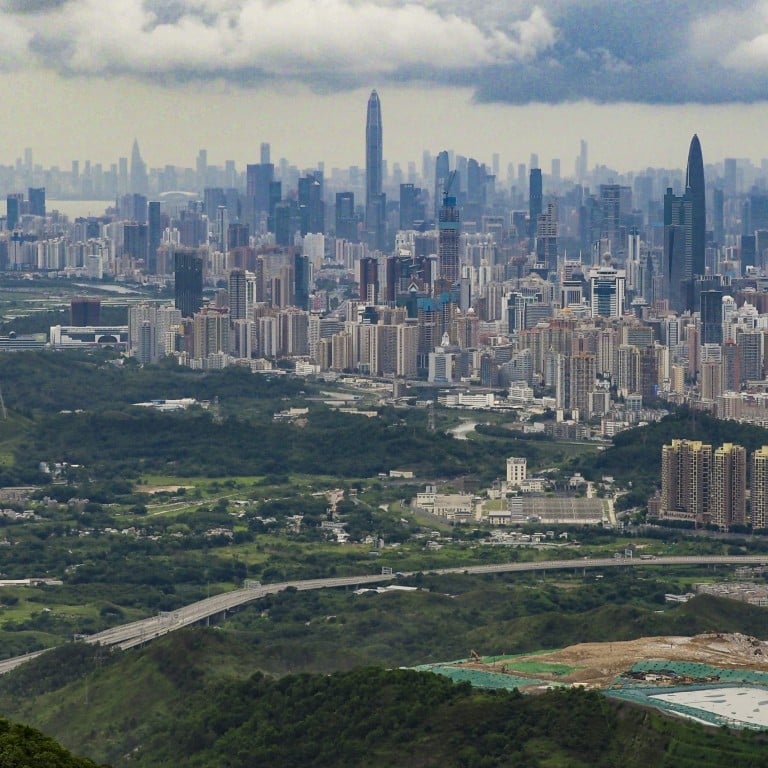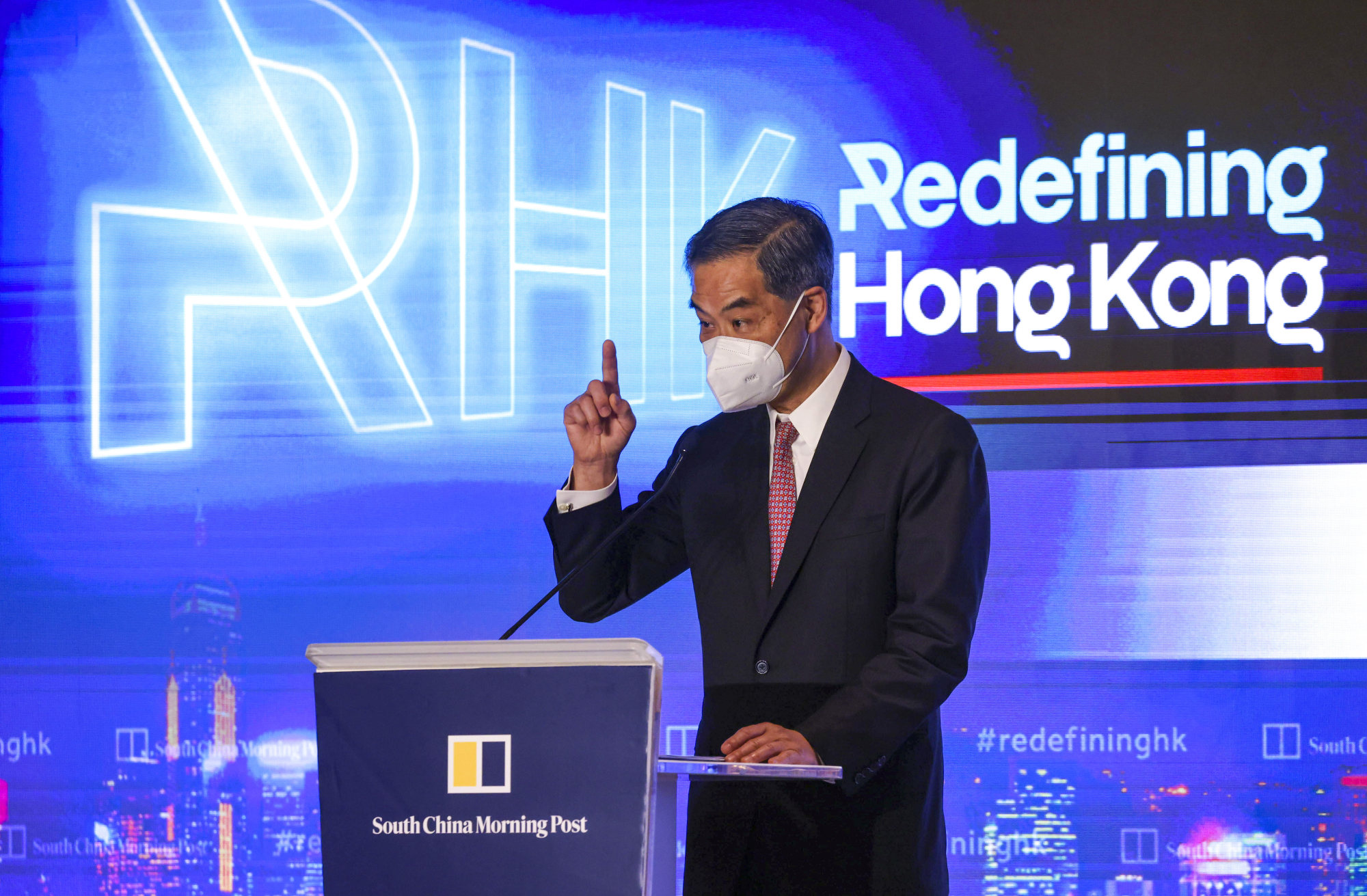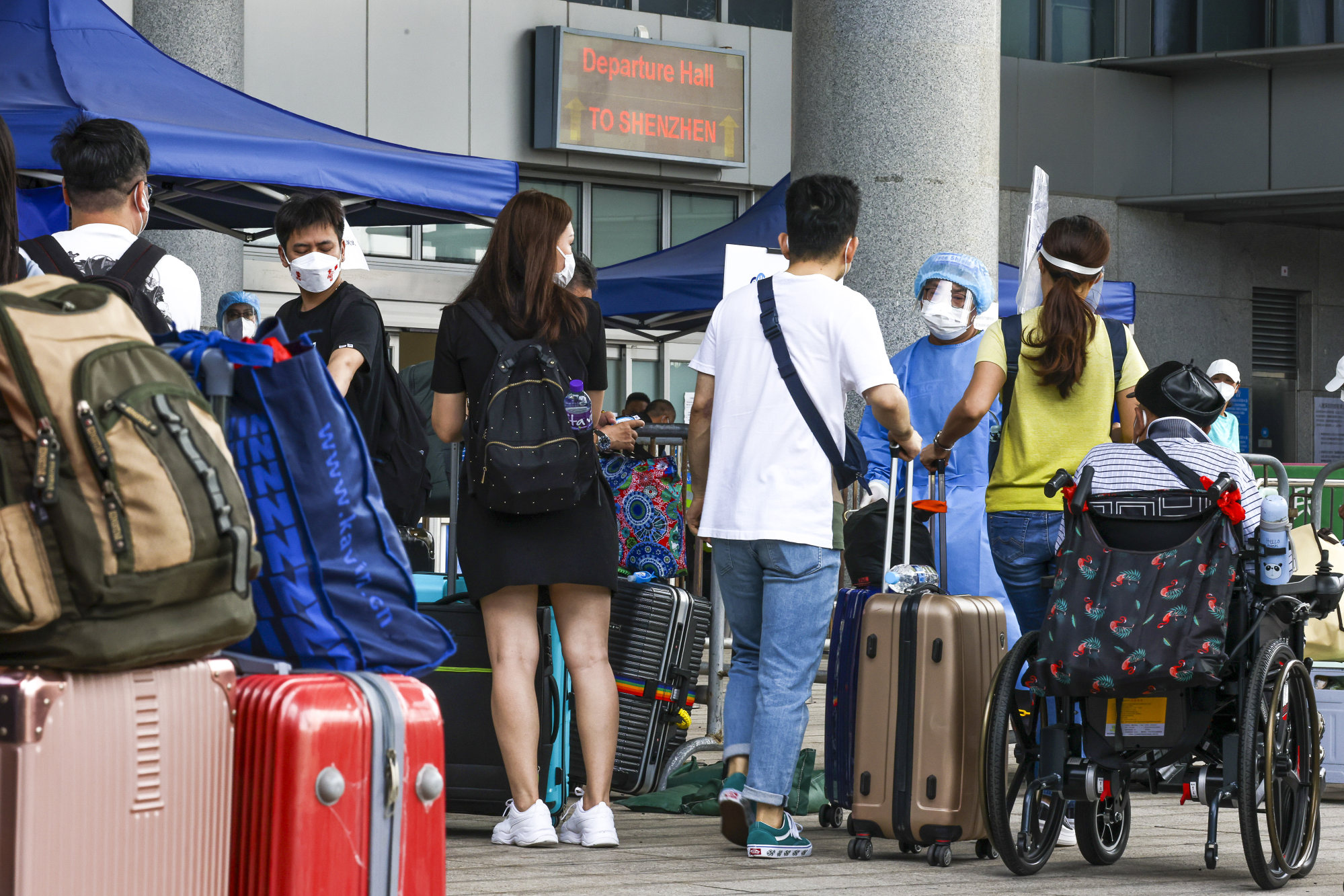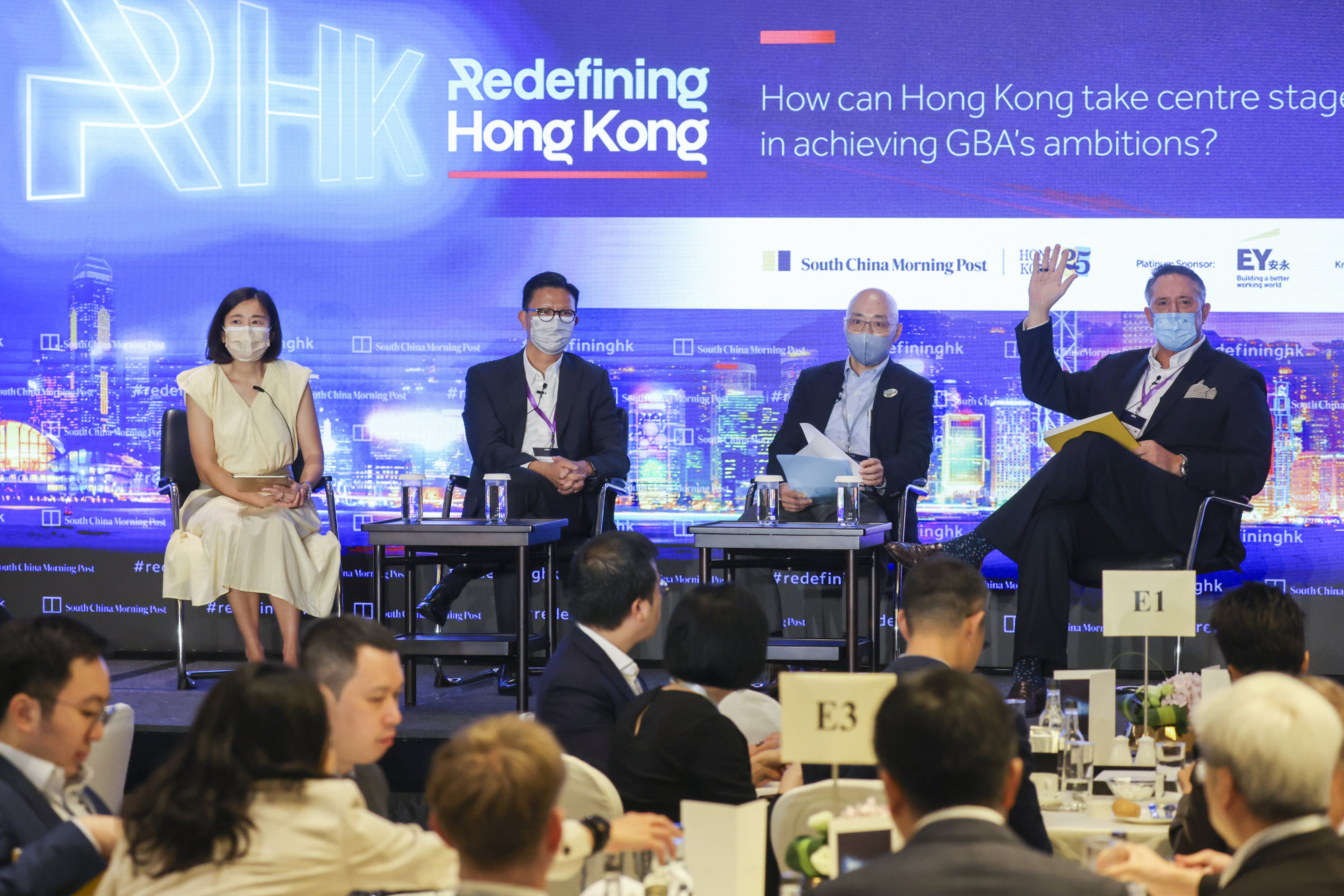
Hong Kong businesses should seek first-mover advantage in mainland China as ‘much has happened’ since Covid-19 pandemic emerged, former city leader CY Leung says
- Former chief executive tells Redefining Hong Kong seminar organised by the Post that communication gap on opportunities the biggest challenge to cooperation
- While it cannot dictate full border reopening, Hong Kong should focus on boosting Covid-19 vaccination rates and containing infections, Leung adds
Hong Kong businesses should seek first-mover advantage in mainland China, a former city leader has said, adding that while the global financial hub cannot dictate when its border with the rest of the country can reopen, it should focus on boosting its Covid-19 vaccination rate and containing the virus.
Leung Chun-ying, now a vice-chairman of the Chinese People’s Political Consultative Conference, the nation’s top advisory body, told the Redefining Hong Kong seminar organised by the Post on Thursday that the city should be first to embrace opportunities on the mainland when the pandemic subsided.
Panellists at the seminar on the Greater Bay Area also shed some light on the future of the government’s Northern Metropolis technology-cum-residential project and tourism, technology and regional trade policies.

Leung noted that since close contact between Hong Kong and the mainland had been suspended for nearly three years amid the pandemic, “much has happened on the other side of the Shenzhen River”.
“We have to catch up … Getting ahead of the curve means getting first-mover advantage,” the former chief executive said. “I can see exponential growth in Guangdong-Hong Kong business cooperation, and now is the time to move.”
Leung also alluded to communication gaps on opportunities across the border.
“Last year, I spent 106 days on the mainland. Often at places that I visit, I say: ‘I didn’t know you have had this policy’ … The replies were ‘Mr Leung, we didn’t know that you didn’t know, it has been on our website’,” he said.
“So ‘mutual didn’t-know’ is the challenge. It is in fact, in my view, the single biggest challenge in further cooperation between Hong Kong and the [bay area] and the entire mainland.”
Speed up construction for Northern Metropolis plan: Hong Kong experts
The bay area project refers to Beijing’s plan to integrate Hong Kong, Macau and nine Guangdong cities into a financial and technological powerhouse by 2035.
Mainland authorities earlier this month cut the quarantine arrangement for incoming travellers from the “7+7” model of seven days in hotel quarantine followed by seven days in home isolation, to “7+3”.
Leung, who led Hong Kong from 2012 to 2017, was asked if he would persuade authorities in Shenzhen and the rest of the nation to further shorten the quarantine period. He said it was more important for the administration to consider ways to further contain Covid-19, so that cross-border travel could be resumed without exporting health risks to the mainland.
“Understandably, we can’t really dictate what the mainland side wants to do. What we in Hong Kong can do is really to ramp up our vaccination rate,” he said.
In Hong Kong, 92.7 per cent of the population aged three or above have had one dose of a Covid-19 vaccine and 88.8 per cent have received two jabs. Among residents aged 12 or above, 64.7 per cent have been given three doses.
Leung said that before the pandemic, as many as half a million people crossed the Hong Kong-mainland border every day. He suggested it would be more pragmatic for governments on both sides to impose a daily quota on cross-border travel in the future.
Former leader CY Leung calls for improving ‘quality’ of young Hongkongers
“There is the question of how do we allocate that quota – all these are administrative issues that we need to contemplate,” he added.
Looking ahead, Leung said local authorities needed to be more aware of the challenges and opportunities facing Hong Kong as one of the 11 cities bundled into the bay area.
Under China’s latest five-year plan, Beijing vowed to support the city in reinforcing its status as an international finance, shipping and trading centre.
Leung said that while many people believed shipping hubs could only succeed with a huge container port, services related to the industry had generated more value to cities such as London than traditional shore-based activities.
He said Hong Kong and Shenzhen should cooperate instead of competing with each other when it came to shipping.

Leung suggested that rather than producing “generation after generation of truck drivers”, Hong Kong should train young people to become maritime professionals and insurance experts.
The former chief executive also pointed to punishing competition that Hong Kong faced from neighbours such as Zhuhai in terms of tourism.
Leung said Chimelong Ocean Kingdom in Zhuhai was one of the best and largest water parks in the world.
“The downturn of business of our Ocean Park in Hong Kong has a lot more to do with this formidable competitor than any other factor,” he argued.
Time for opposition camp, supporters to accept Hong Kong’s Basic Law: CY Leung
In a panel discussion that followed on tourism development against the backdrop of the bay area, Timothy Ng Sau-kin, operations and entertainment executive director at cash-strapped Ocean Park, said the 45-year-old attraction had pressed ahead with a plan to transform itself into a financially self-sufficient leisure and retail destination. Its focus is on education and conservation, with entertainment and other activities outsourced.
He said the tender of its redevelopment plan under a build-operate-transfer model would close by the end of this month, with partners invited to jointly operate a free-entry retail, dining and entertainment area at the park’s lowland site. The park will operate conservation facilities, cable car and its Water World attraction.
Ng said the park’s 425-room Fullerton Ocean Park Hotel Hong Kong overlooking the South China Sea would start trial operations later this month.

In terms of new offerings, Kenneth Wong Cheuk-hung, the Hong Kong Tourism Board’s general manager of MICE (meetings, incentives, conventions and exhibitions) and cruises, said recently launched attractions added to the city’s competitiveness in the bay area.
“On top of evergreen products like a variety of food and culture in the city …. we also have the Palace Museum, M+ museum, Ocean Park’s Water World and new products at Disneyland,” he said. “When the border reopens, I think we are more than ready.”
The Hong Kong Palace Museum opened to the public last week at the West Kowloon Cultural District while M+ debuted in November last year.
Hong Kong Disneyland Resort managing director Michael Moriarty said the theme park was popular with annual pass holders, especially after its castle was upgraded last month with a 20-minute night show “Momentous” using 3D projection mapping technology and fireworks following a nearly 4½-year revamp. The revamp is part of the resort’s HK$10.9 billion expansion plan scheduled for completion in 2023.
But he conceded that there was a delay in the overall expansion plan due to the pandemic. He declined to reveal when the final new attraction, based on the popular animated film Frozen, would open to the public. It was scheduled to finish next year.



